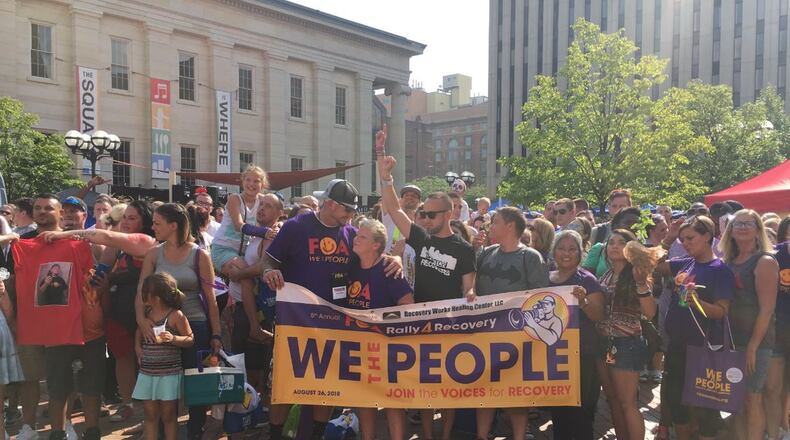Here is some of what I learned:
- Treatment and recovery looks different for everyone
No two people I interviewed took the same path to recovery.
Some preferred abstinence programs and 12-step meetings. Some swore by Vivitrol shots that block cravings for 30 days. Some said being locked up saved them from themselves.
Almost everyone tried and failed multiple times until they found the program that worked for them. There’s still much debate in the industry about what kind of treatment works best, but many in recovery say it’s the one that works for you.
>> Ohio rule change sparks debate about addiction treatment
>> Millions of tax dollars pay for new drug treatment -- is it working?
2. Many people in recovery want to give back
I wasn’t sure when I set out to interview people about their addictions if anyone would want to share their story publicly. I was aware of the anonymity part of 12-step and thought I’d have trouble getting people to open up.
At our first Your Voice Ohio town hall event in Dayton, a young man sitting next to me introduced himself and said he used to be a heroin addict.
Almost every person I’ve interviewed since then has had that level of openness and honesty. They’ve talked about crimes they committed, people they hurt, regrets they carry. And many vowed to give back to their community by volunteering, serving as peer supporters and sponsors of others, and going back to school to get licensed and work in treatment centers.
“The attitude of those in recovery about sharing their story has changed,” said Casey Steckling, founder of Dayton Recovers. “Many are more open about their recovery status, recognizing that the recovery community is mandated to share how much good is occurring that the public isn't typically exposed to.”
>> Convicted 12 times, mom turns life '180 degrees' after drug court
>> Local chef in recovery serves up message of hope
>> From homeless veteran and addict to helping others at the Dayton VA
>> Local mom in recovery: Jail ‘best thing that ever happened to me’
3. Addiction touches every part of our community
The more our Path Forward team dug into our topics — the addiction crisis, Dayton Public Schools and how to make the local economy thrive — the more I realized how big an impact addiction has had on many aspects of life in the Miami Valley.
We couldn't talk about jobs without talking about the workforce shortage local businesses face in part due to drug use. So I looked at how employers are helping their employees and hiring people in recovery.
We couldn't talk about our schools without hearing from educators about the trauma students suffer due to drug use in their families. So I wrote about the impact of the crisis on children and solutions being explored to unburden the child welfare system.
Interviews on wide-ranging topics almost inevitably have come back to the toll addiction has taken in our community. The fight won’t be over whenever the opioid war is declared over, but local leaders are confident in Dayton’s ability to use the lessons its learned to overcome the next crisis.
Read more about Dayton’s new role as recovery capital: Dayton cut overdose deaths in half — and learned these lessons to prevent another crisis
About the Author
